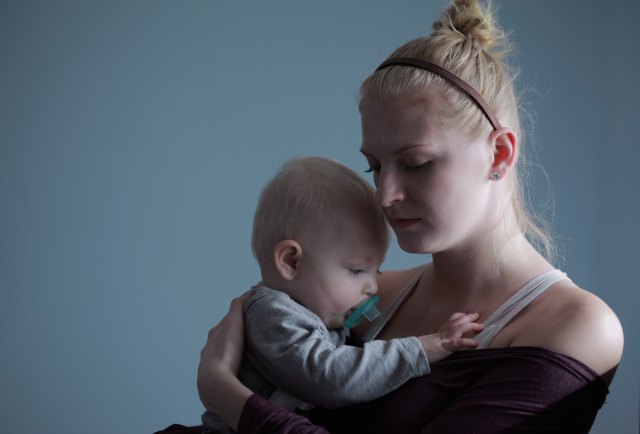For moms with severe postpartum depression, there could be new hope on the horizon. The U.S. Food and Drug Administration approved the first drug to treat postpartum depression—and it’s groundbreaking. According to the American Psychological Association, postpartum depression affects as many as one in seven women in the United States.
The new drug, which just received the FDA’s stamp of approval, is called brexanolone or Zulresso. Unlike other depression mediations, this one is not a pill, but is instead administered intravenously over the course of a 60-hour infusion in a clinical setting. Trials of the drug showed improvement for women in just 24 hours.
photo: Sharon McCutcheon via Unsplash
“This can potentially transform women’s lives and that of their families,” said Dr. Steve Kanes, chief medical officer of Sage Therapeutics, the Cambridge, Mass., biopharmaceutical company that developed brexanolone. “It’s not just the mother who suffers when there’s postpartum depression. It’s the newborn. It’s the other people in their family.”
The drug contains a synthetic form of the hormone allopregnanolone, a progesterone derivative. The progesterone hormone increases significantly during pregnancy then drops after birth, which could be a factor in developing postpartum depression.
The most common side effects of the drug in the trial were dizziness and drowsiness. Sage Therapeutics believes it will be considered safe for all moms, including those breastfeeding, but they are still waiting on a final FDA ruling.
The treatment won’t be cheap, however, with the single infusion running between $20,000 to $35,000, which won’t include the cost of a stay at a clinical facility—and of course, this doesn’t factor in the cost of childcare for the kids of moms with PPD while she’s in treatment. No word yet on if this treatment or how much of it would be covered by insurance.
—Shahrzad Warkentin
RELATED STORIES
This Is the Key to Preventing Pre- & Post-Natal Depression, Task Force Finds
Moms with Postpartum Depression Are More Likely to Have This in Common
Dads, We Need to Talk about Postpartum Depression—because You Get It, Too











